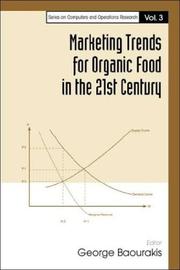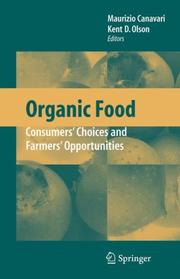| Listing 1 - 10 of 14 | << page >> |
Sort by
|
Periodical
Abstract | Keywords | Export | Availability | Bookmark
 Loading...
Loading...Choose an application
- Reference Manager
- EndNote
- RefWorks (Direct export to RefWorks)
Book
ISBN: 1614704848 Year: 2010 Publisher: New York : Nova Science Publishers,
Abstract | Keywords | Export | Availability | Bookmark
 Loading...
Loading...Choose an application
- Reference Manager
- EndNote
- RefWorks (Direct export to RefWorks)
Periodical
Abstract | Keywords | Export | Availability | Bookmark
 Loading...
Loading...Choose an application
- Reference Manager
- EndNote
- RefWorks (Direct export to RefWorks)
Periodical
Abstract | Keywords | Export | Availability | Bookmark
 Loading...
Loading...Choose an application
- Reference Manager
- EndNote
- RefWorks (Direct export to RefWorks)
Book
ISBN: 161376670X 9781613766712 9781613766705 1613766718 9781625344212 Year: 2019 Publisher: Amherst
Abstract | Keywords | Export | Availability | Bookmark
 Loading...
Loading...Choose an application
- Reference Manager
- EndNote
- RefWorks (Direct export to RefWorks)
In the 1960s and early 1970s, countercultural rebels decided that, rather than confront the system, they would create the world they wanted. The natural foods movement grew out of this contrarian spirit. Through a politics of principled shopping, eating, and entrepreneurship, food revolutionaries dissented from corporate capitalism and mainstream America. In Food for Dissent, Maria McGrath traces the growth of the natural foods movement from its countercultural fringe beginning to its twenty-first-century "food revolution" ascendance, focusing on popular natural foods touchstones--vegetarian cookbooks, food co-ops, and health advocates. Guided by an ideology of ethical consumption, these institutions and actors spread the movement's oppositionality and transformed America's foodscape, at least for some. Yet this strategy proved an uncertain instrument for the advancement of social justice, environmental defense, and anti-corporatism. The case studies explored in Food for Dissent indicate the limits of using conscientious eating, shopping, and selling as tools for civic activism.
Natural foods industry --- Consumer movements --- Natural foods --- Food habits --- History --- United States.
Book
ISBN: 0804798737 9780804798730 9780804795906 0804795908 Year: 2016 Publisher: Stanford, California
Abstract | Keywords | Export | Availability | Bookmark
 Loading...
Loading...Choose an application
- Reference Manager
- EndNote
- RefWorks (Direct export to RefWorks)
Stakeholders in the organic food movement agree that it has the potential to transform our food system, and yet there is little consensus about what this transformation should look like. Tracing the history of the organic food sector, Michael Haedicke charts the development of two narratives that do more than simply polarise the organic debate, they give way to competing institutional logics. On the one hand, social activists contend that organics can break up the concentration of power that rests in the hands of a big, traditional agribusiness. Alternatively, professionals who are steeped in the culture of business emphasise the potential for market growth, for fostering better behemoths.
Natural foods industry --- Food industry and trade --- History. --- Industrial organization --- Industries --- Organization --- Industrial concentration --- Industrial management --- Industrial sociology --- History --- E-books
Book
ISBN: 163484176X 9781634841764 9781634841672 Year: 2016 Publisher: New York
Abstract | Keywords | Export | Availability | Bookmark
 Loading...
Loading...Choose an application
- Reference Manager
- EndNote
- RefWorks (Direct export to RefWorks)
Organic farming --- Natural foods industry. --- Economic aspects. --- Food industry and trade --- Ecological agriculture --- Organic agriculture --- Organic crops --- Organic cultivation --- Organic production of crops --- Organiculture --- Regenerative agriculture --- Agriculture
Multi
ISBN: 9780128120613 0128120614 9780128120606 0128120606 Year: 2019 Publisher: San Diego, CA Academic Press
Abstract | Keywords | Export | Availability | Bookmark
 Loading...
Loading...Choose an application
- Reference Manager
- EndNote
- RefWorks (Direct export to RefWorks)
Safety and Practice for Organic Food covers current food safety issues and trends. It provides detailed information on all organic and pasture practices including produce-only, farm-animal-only, or integrated crop-livestock farming, as well as the effect of these practices on food safety and foodborne infections. The book explores food products that organic, integrated, and traditional farming systems contribute to consumers. As the demand for organic food products grows faster than ever, this book discusses current and improved practices for safer products. Moreover, the book explores progressive directions, such as the application of next-generation sequencing and genomics to aid in the understanding of the microbial ecology of the agrienvironment, and how farmer education can contribute to sustainable and safe food--back cover.
Natural foods --- Natural foods industry --- Organic farming. --- Safety measures --- Quality control --- food safety --- product quality --- organic product --- food processing --- organic farming

ISBN: 9812387684 9786611956011 1281956015 9812796622 9789812796622 9789812387684 Year: 2004 Publisher: River Edge, NJ World Scientific
Abstract | Keywords | Export | Availability | Bookmark
 Loading...
Loading...Choose an application
- Reference Manager
- EndNote
- RefWorks (Direct export to RefWorks)
The marketing of organic products is viewed as a significant link between the production side of the business and the consumers, thereby facilitating the distribution of these relatively new products. It has become obvious that companies can organize organic production and influence consumers' purchasing behaviour through the employment of appropriate marketing strategies. This book explores the marketing trends for organic food products through the analysis of those elements that contribute to the expansion of the organic product market. It will aid marketers in facing the challenges that th
Electronic books. -- local. --- Natural foods -- Marketing. --- Natural foods industry. --- Natural foods --- Marketing. --- Food, Natural --- Health foods --- Natural food --- Organic food --- Organic foods --- Organically grown foods --- Whole foods --- Wholefood --- Food --- Food industry and trade --- Natural foods industry --- Health Food --- Marketing --- economics --- trends --- E-books

ISBN: 1281180637 9786611180638 0387395822 0387395814 144192289X Year: 2007 Publisher: New York : Springer Science+Business Media,
Abstract | Keywords | Export | Availability | Bookmark
 Loading...
Loading...Choose an application
- Reference Manager
- EndNote
- RefWorks (Direct export to RefWorks)
Consumers’ attention to food safety issues and environmental issues has increased overwhelmingly in recent decades because of their increased concern about their own health, the environment’s health, and the crises and emergencies reported worldwide. Once the only option, organic agriculture has always been a production option followed by at least a few farmers all over the world. These farmers were prompted by ethical and environmental motivations, as well as by committed consumers who supported organic agriculture thanks to a separate but fairly elitist distribution channel. Organic food now has become a viable alternative for an increasing number of consumers that are worried about the presence of chemicals residues and the negative consequences on the environment caused by intensive production methods. Many farmers also now see organic farming as a way to stabilize or even increase their income due to public policy support and growing market demand. Organic Food: Consumers' Choices and Farmers' Opportunities gives an overview of the organic sector, both in Italy and in the United States, and demonstrates how agricultural economists are performing analyses dealing with organic produce on different points in the supply chain. It deals with economic issues raised by organic farming and takes into account both the consumer's needs and the managerial and budget constraints experienced by the farmers. Also farm management methodologies and marketing analyses are used with specific research topics involving several industries in the agri-food sector. About the Editors: Maurizio Canavari is an Associate Professor in the University of Bologna’s Department of Agrarian Economy and Engineering. Kent D. Olson is a Professor in the University of Minnesota’s Department of Applied Economics.
Natural foods industry --- Natural foods industry. --- Natural foods. --- Organic farming --- Organic farming. --- Ecological agriculture --- Organic crops --- Organic cultivation --- Organic production of crops --- Organiculture --- Regenerative agriculture --- Agriculture --- Food, Natural --- Health foods --- Natural food --- Organic food --- Organic foods --- Organically grown foods --- Whole foods --- Wholefood --- Food --- Food industry and trade --- Organic agriculture --- Food science. --- Agricultural economics. --- Food Science. --- Agricultural Economics. --- Science --- Agrarian question --- Agribusiness --- Agricultural economics --- Agricultural production economics --- Production economics, Agricultural --- Land use, Rural --- Economic aspects --- Food technology --- Chemical engineering
| Listing 1 - 10 of 14 | << page >> |
Sort by
|

 Search
Search Feedback
Feedback About UniCat
About UniCat  Help
Help News
News